“Beckham” Editor Michael Harte on Bending A Massive Archive Into a Must-See Doc
Directed by Fisher Stevens, the documentary miniseries Beckham has been a hit for Netflix, charting David Beckham’s rise as a Manchester United star, England team captain, and player for Real Madrid and the LA Galaxy. But football (we’ll call it that here, as Beckham, his family, his mentor Alex Ferguson, and dozens of teammates and fellow celebrities do throughout the miniseries) is only one way into the star’s life, with the relationship between David and his wife of almost 25 years, Victoria Beckham (née Adams, and still oft known as Posh Spice) central to framing the mind-blowing level of celebrity heaped upon the couple after they got together in the 1990s.
Beckham is considered one of the best midfielders of all time and has won league titles in England, Spain, the US, and France, but his fame transcends even this level of spectacular professional success. Through its star’s candor and sincere interviews with Victoria, his parents, and former teammates like Gary Neville and Landon Donovan, Beckham explains Beckham as a new kind of football star and celebrity in one. Explaining the toll this takes on his family is something Stevens embraces rather than elides over, and ultimately, the documentary is as compelling a commentary on the alarming downsides of global stardom as it is a biography of Beckham’s career and personal life.
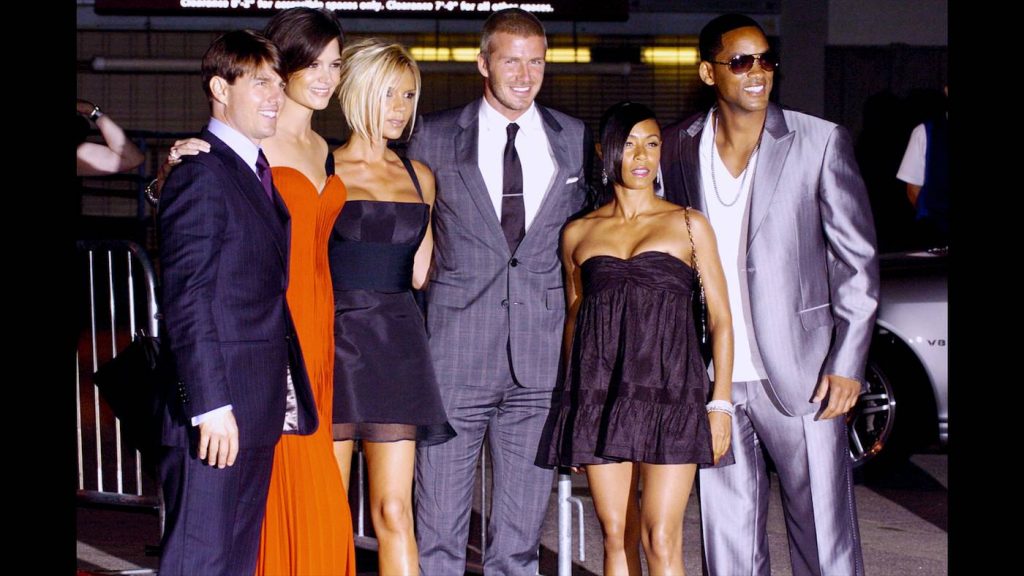
Given the sheer volume of footage of the Beckhams, culling the most salient gems and matching them to over 70 interviews was a mighty undertaking. We spoke with editor Michael Harte about reworking the entire initial edit, abandoning his standard approach to archival footage, and letting Beckham’s most important relationships shape what came to life on screen.
How did you even approach such a massive amount of footage?
I’ve worked on some projects with a huge amount of archives before. I have a good method to get through it, but I’m slightly obsessive and have to watch everything. When it came to this, it was like, am I going to be able to? You’ve got the most photographed man in the world who then marries the most photographed woman in the world. I also had 30 years of football matches, the buildup before it, the celebrations after, the fallout, and the news. This was, without a doubt, my Everest in terms of archive. Every shot can change a documentary if you use it in the right way, and I can’t sleep properly unless I go through all the material and have it organized.
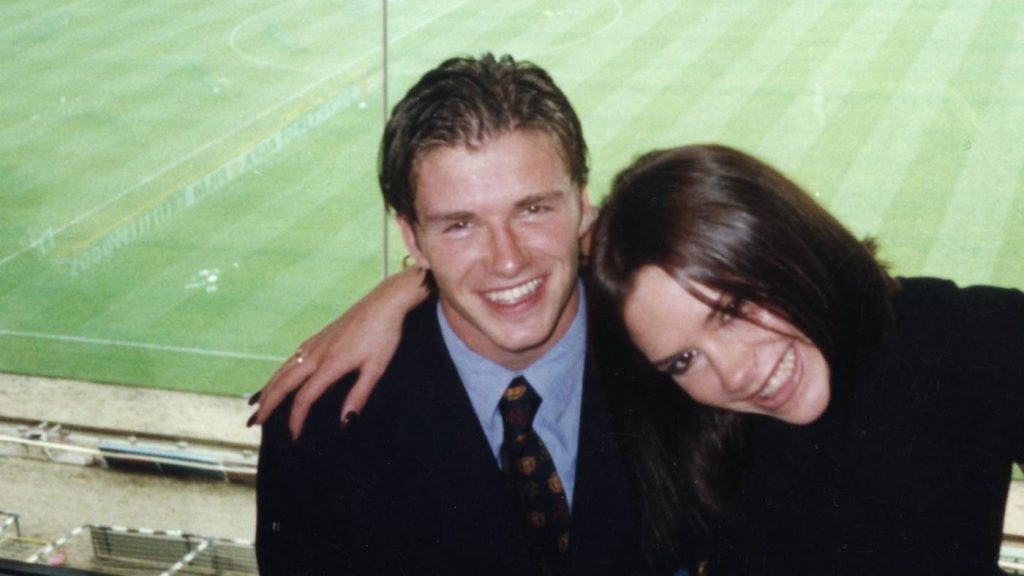
How, in particular, did you manage all the games?
I did have an assistant for the matches. We would go through every game he ever played, from the season before he scored the goal at Wimbledon, from 1996 onwards, and every time he touched the ball, we’d mark it. What I realized was that when I was watching the games, I got more interested in the moments when he didn’t have the ball and the camera was on him. He’d glance at his manager, Alex Ferguson, and Alex Ferguson would look at him. It was a film not just about football but about family and father figures, and Alex Ferguson really was one of his father figures. Those shots became key. That was a whole new layer of archive we needed to pull in, which was Alex Ferguson on the sidelines whenever he shouted at David or called to him.
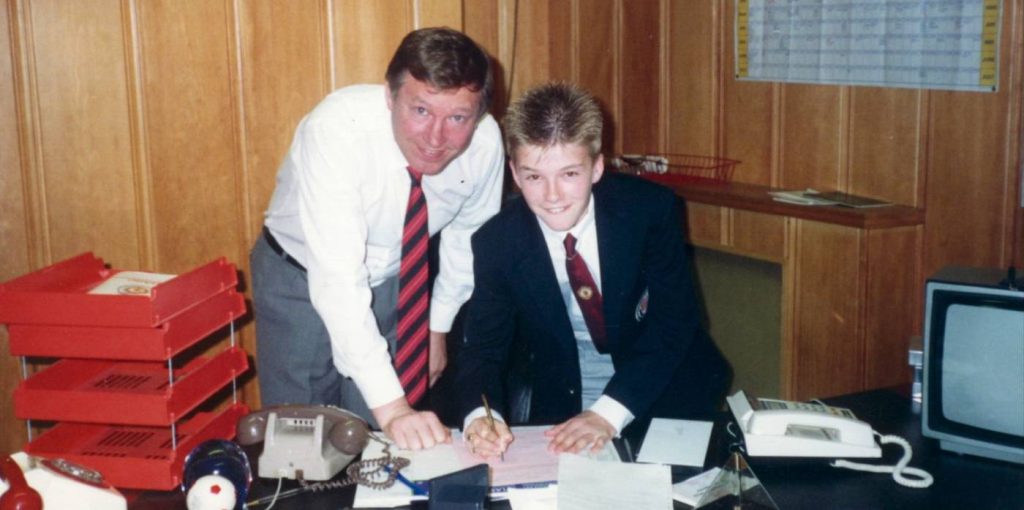
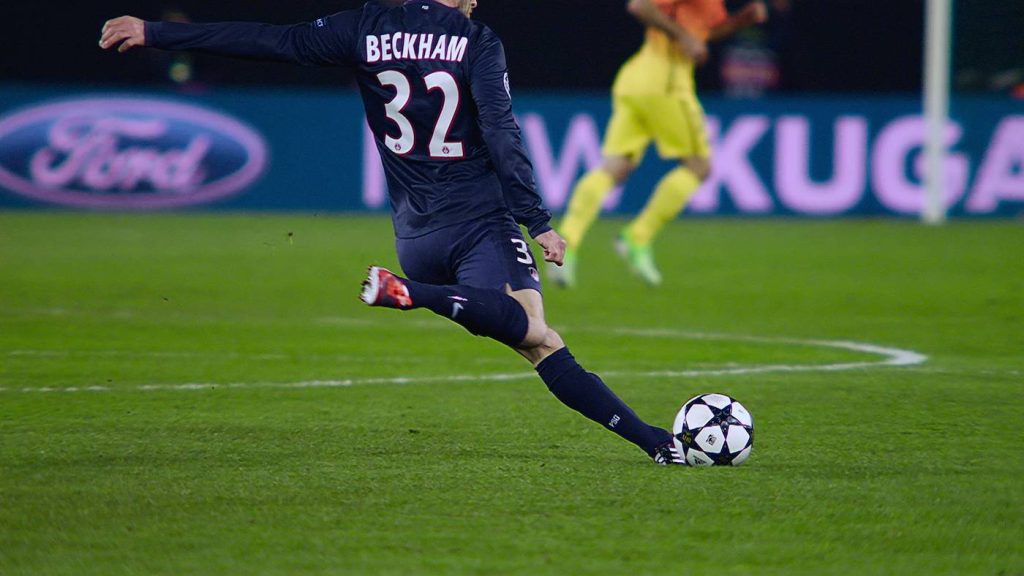
At some point, Ted Beckham, David’s father, mentions that he also has every single kiddie football match David has ever played on tape.
The funny thing was, he was the last interview I watched. I’d thought I had a handle on all the material and then he dropped that line, I’ve got 1300 videotapes.
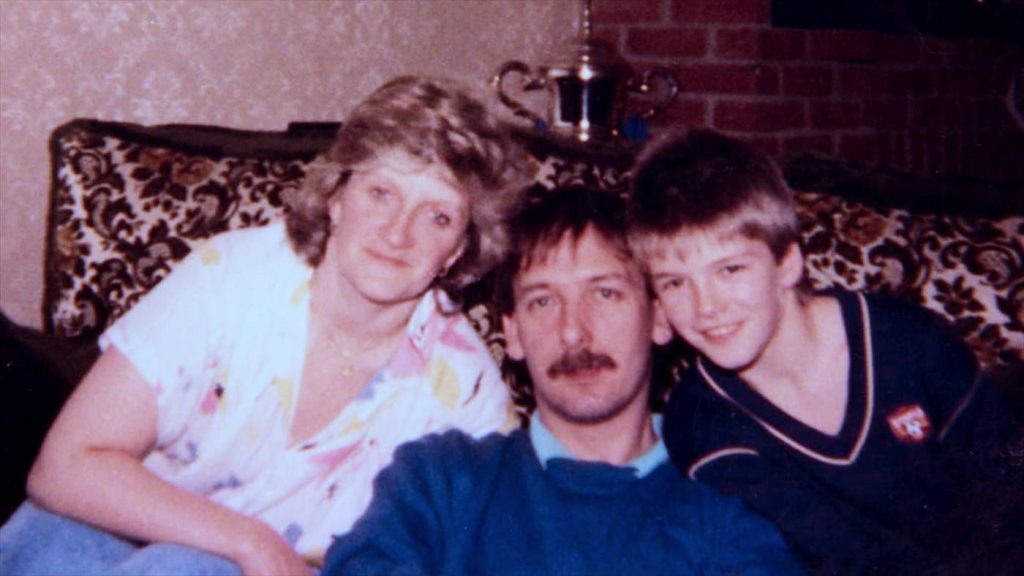
How did you even know when it was time to move from the archive into the edit?
It sounds a little bit cheesy, but I’ll wake up one day and feel it’s time to start playing with the material. Normally, that time is when I’ve seen everything. But I realized with David’s story that there is no end. There are so many different lanes in this story that the decision was made: What are we focusing on here? And that would tell us when we’d seen enough material. You’re just not able to watch every bit of material from David Beckham. About six weeks in, I realized that my method had to go out the window.
Beckham’s image went up and down with his fans, particularly after the red card at the 1998 World Cup. How did you hit those emotional beats?
That became pivotal to the story. The reaction from the fans in England is so intense. I’m a huge football fan, and I kind of get it, but not to that extent. There was something else going on that was more than football. Everything in Episode 1 is building up to that moment. It’s an ascent to the top, and watching the dynamic between him and Victoria and Alex Ferguson is fascinating. The footage came in and it was just endless of fans almost rioting. Fisher really recreated a very comfortable space for him to discuss 1998. It almost felt like therapy. That, to me, when I watched all the interviews, was the bit that stood out the most emotionally. It felt like you could well and truly tell it was the first time he said a lot of the things he said about 1998. I wanted to lean into Fisher’s voice a little more in those sections because you wanted it to feel like he was telling someone, that it wasn’t just an interview for a camera. The relationship between Fisher and David, particularly in that section, was really important.
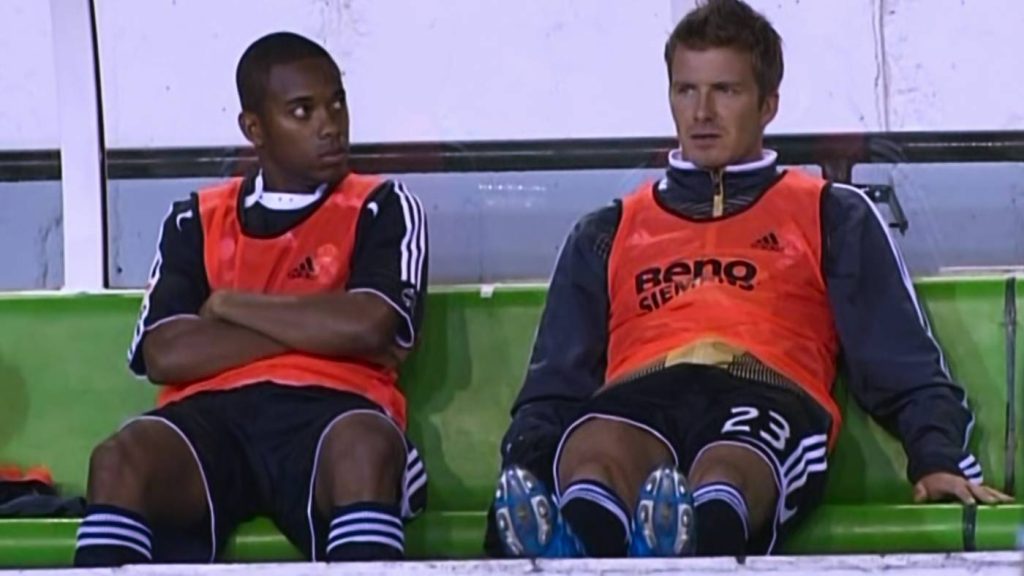
Were you particularly interested in the Beckhams going into this project?
I’m a Liverpool fan. And I’m from Ireland, so England, we tried to beat for years. But look, even though I was a Liverpool fan and Ireland fan, in the 90s, I dyed my hair and grew it long because I wanted to be Beckham, as many people did. He transcended football. I wanted to beat him, but I also wanted to be him. And the Spice Girls and Manchester United were huge. So when [he and Victoria] got together, we hadn’t seen that before. And I haven’t seen that again, to that extent.
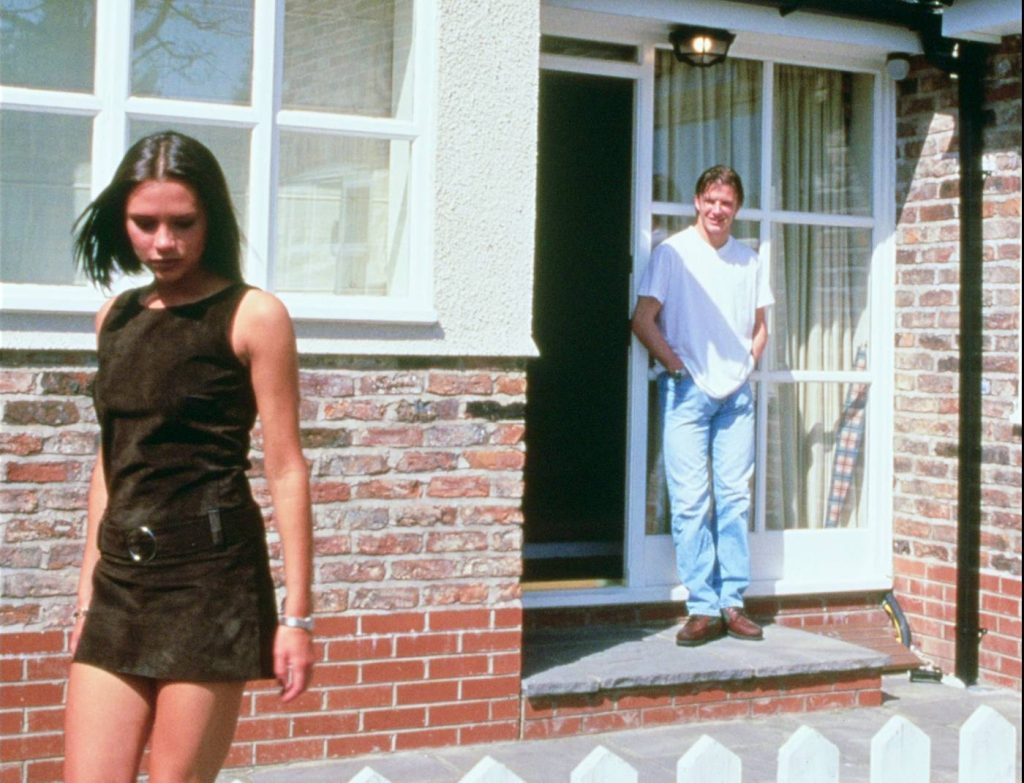
The documentary really conveys that level of extreme stardom. How did you ensure that you showed the highs and the lows?
That was a big focus for us when we were cutting to really lean into that. Initially, the first cut we had was very much focused on football. It was about Manchester United and David being within that. As a football fan, it was fascinating, but I remember realizing we’re isolating so much of the audience here. This is not doing justice to David Beckham’s story. We asked, what is this actually about? Two things emerged: one is celebrity, especially in the 90s, and the second is family. The initial first cut was using David to understand football. I remember watching it with my partner; she was totally uninterested. We then leaned into his relationship with Victoria, his relationship with his family, and with his father figure, Alex Ferguson. It really helped. And then we used the celebrity world as a kind of backdrop to see how a family navigates this world, which was very intense in the 90s, especially in the UK. We didn’t ignore the football, but it became a way in as opposed to the endpoint.
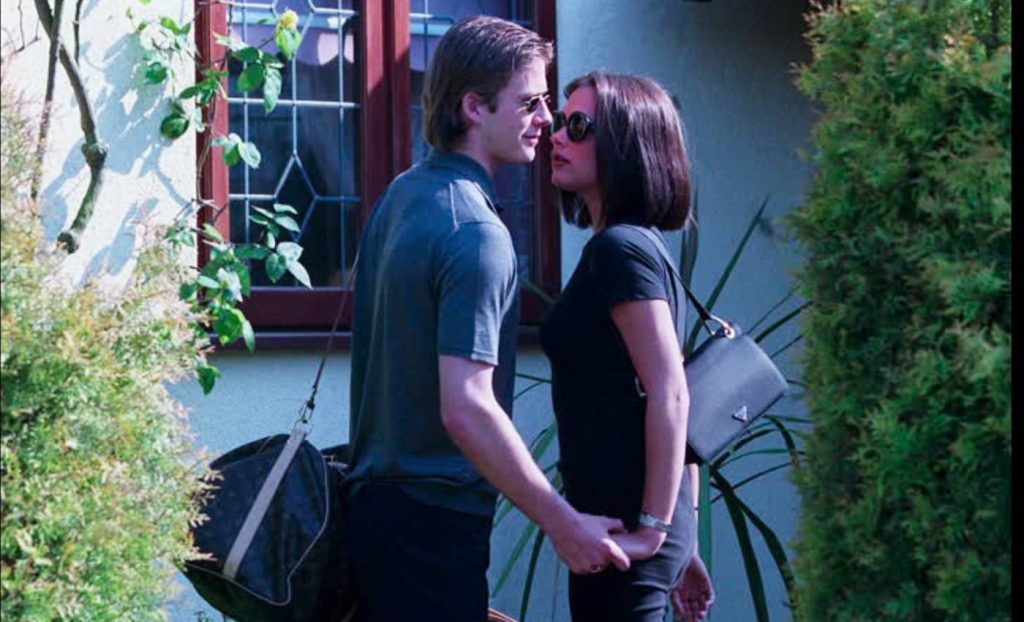
I particularly loved Victoria’s interviews. Were they key to getting the story across?
I thought she was incredible. Sometimes, if I’d get stuck at story points in the edit, inevitably, the answer would be, what’s Victoria doing right now? Where is she? Are the paparazzi on her case? Ultimately, she’s very insightful and very funny, and she did give it all to Fisher in the interview. I knew the Beckhams from the 90s because they were so famous, but I didn’t really know the Beckhams. I had an image of Posh Spice, but when I started looking at her archive and interviews, I realized this is a very complex person who has gone through a huge amount that I can relate to, which is trying to make it work for your family. David was the same. That’s what it always came down to for them. Their interviews really came alive when they talked about each other and their family. I think the peak of it all is when David pops his head in the door, and it’s the “be honest” moment. You just see the dynamic between the two of them. It felt real.
For more on big titles on Netflix, check these out:
How the “Baby Reindeer” Cinematographer Kryzsztof Trojnar on Lensing Loneliness
How the “Bridgerton” Costume Designers Dialed up the Romantic Fantasy in Season 3
First “Knives Out 3” Image Finds Daniel Craig’s Benoit Blanc With Long Locks
Featured image: David Beckham in “Beckham.” Courtesy Netflix.



